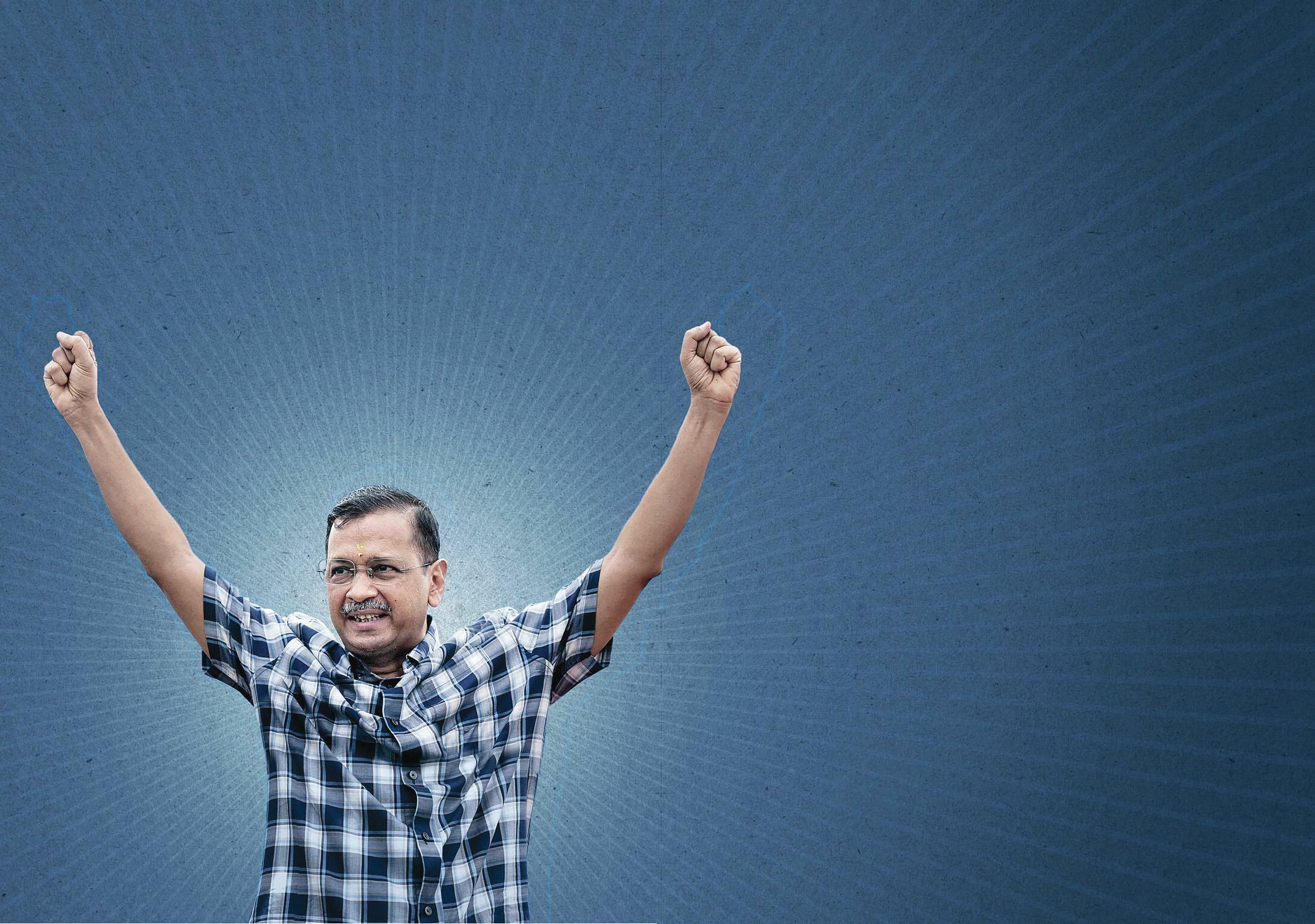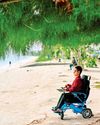
On May 11, Delhi Chief Minister Arvind Kejriwal arrived at the Aam Aadmi Party’s office in the national capital to a roaring welcome by party leaders and workers. Just the previous evening, he had walked out of Tihar Jail after the Supreme Court granted him interim bail for 21 days in a case relating to his government’s now scrapped liquor policy. The party workers applauded each and every line he uttered that day. His speech, a no-holds-barred attack on Prime Minister Narendra Modi and the Bharatiya Janata Party, set the tone for his campaign for the Lok Sabha elections.
During the speech, a party worker said, “kal shaam aandhi aayi thi” (there was a storm last evening). Kejriwal could not hear him properly. Party workers then repeated the line in a chorus. He smiled broadly. A severe thunderstorm had hit Delhi the previous evening, the strong winds uprooting trees and causing flight delays and cancellations. But, the storm they were referring to was Kejriwal.
That very day, Kejriwal hit the ground running— out of jail, straight into electioneering. He has been at his aggressive best during his campaign, unflinching in his attack on Modi and the BJP.
Amid the punishing campaign schedule, Kejriwal gave a detailed interview to THE WEEK. He exuded confidence that the INDIA bloc would form the next government by winning more than 300 seats. He said that while the focus of the INDIA parties was on issues such as unemployment and price rise, Modi had not even uttered these words.
Kejriwal spoke in detail about his time in jail, saying he was housed alone in a cell and that all his movements were monitored 24x7 through CCTV feed. He claimed the prime minister’s office, too, monitored the live stream. He said every attempt was made to break him psychologically and emotionally.
Denne historien er fra June 09, 2024-utgaven av THE WEEK India.
Start din 7-dagers gratis prøveperiode på Magzter GOLD for å få tilgang til tusenvis av utvalgte premiumhistorier og 9000+ magasiner og aviser.
Allerede abonnent ? Logg på
Denne historien er fra June 09, 2024-utgaven av THE WEEK India.
Start din 7-dagers gratis prøveperiode på Magzter GOLD for å få tilgang til tusenvis av utvalgte premiumhistorier og 9000+ magasiner og aviser.
Allerede abonnent? Logg på

Walking in pine forest can have the same effect as a prescription drug
INTERVIEW - KATHY WILLIS, professor of biodiversity, the University of Oxford, and author, Good Nature

MORE THAN A HELPING HAND
Maria Victoria Juan spent a lifetime healing wounded soldiers, and she can't think of anything she could have done better

Against all odds
Mohamed Raishan Ahmed was born with spinal muscular atrophy, which made him unable to sit, stand or walk. Recently, the Maldivian underwent a rare, complex surgery in India that now allows him to sit upright. At 23, the fact that he is alive is in itself an achievement. But he has gone beyond mere survival-with a pursuit of excellence

A pacemaker tale
From science fiction to reality, with a touch of southern Indian wisdom

Driving safe
Taxi drivers endure gruelling hours, cramped seats and relentless traffic, making them prime candidates for health issues like back pain, hypertension, diabetes and insomnia.

Good food, good life
From the moment of birth, we establish a relationship with food—a nourishing link that requires care and attention to stay healthy

POOR SLEEP IN MIDLIFE COULD AGE YOUR BRAIN FASTER
PEOPLE WHO EXPERIENCE SLEEP ISSUES, such as difficulty falling asleep or staying asleep in their 40s, may show more signs of brain ageing in late midlife. Poor sleep may accelerate brain atrophy that is associated with dementia.

BRAIN SCANS SHOW MINDFULNESS MEDITATION CAN REDUCE PAIN
CAN MINDFULNESS MEDITATION actually relieve pain, or is it just a placebo effect?

NON-SURGICAL OPTION TO EASE KNEE ARTHRITIS
A NEW, MINIMALLY INVASIVE procedure called genicular artery embolisation (GAE) can effectively reduce pain, improve quality of life and reduce progression of the disease and the need for knee replacement surgery in people with knee osteoarthritis.

EARLY ONSET DIABETES, BELLY FAT LINKED TO DEMENTIA
FACTORS SUCH AS DIABETES and belly fat in midlife can put you at risk of dementia and Alzheimer's disease later in life.